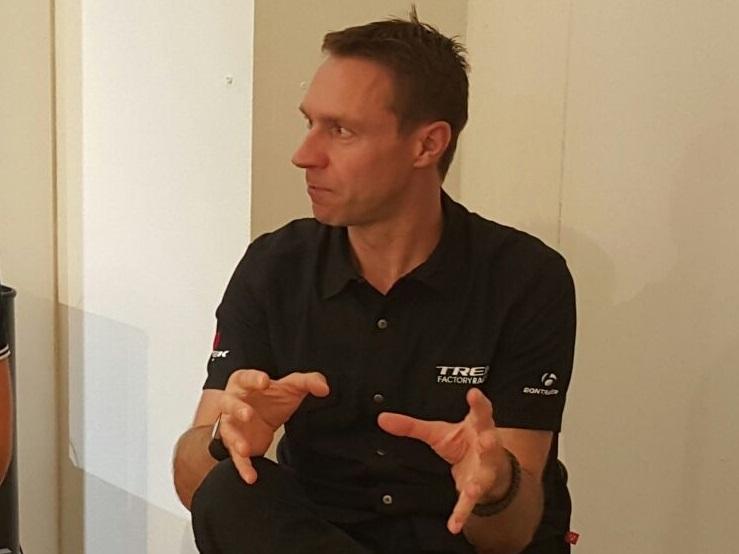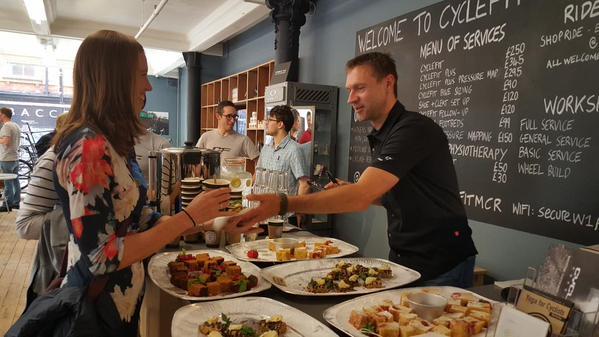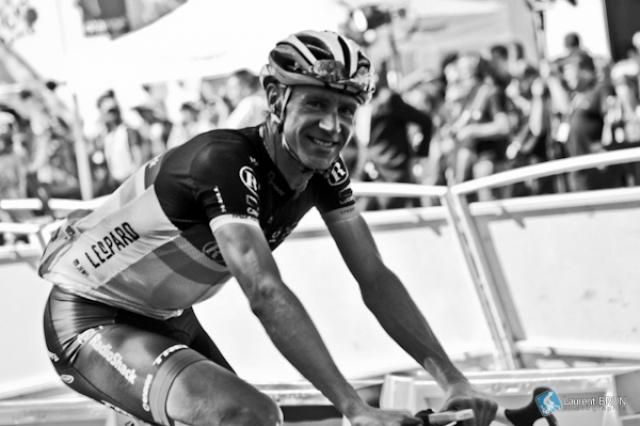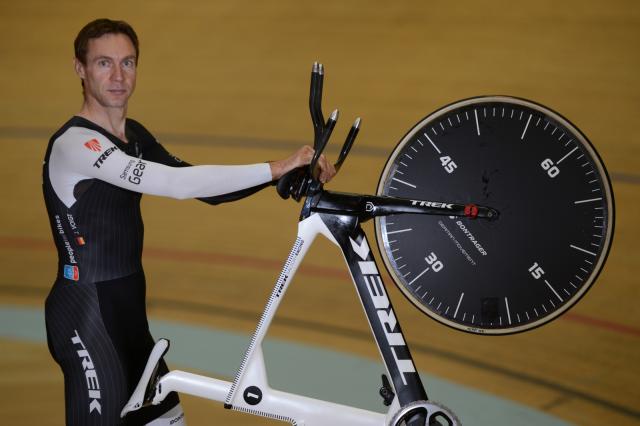- News
- Reviews
- Bikes
- Components
- Bar tape & grips
- Bottom brackets
- Brake & gear cables
- Brake & STI levers
- Brake pads & spares
- Brakes
- Cassettes & freewheels
- Chains
- Chainsets & chainrings
- Derailleurs - front
- Derailleurs - rear
- Forks
- Gear levers & shifters
- Groupsets
- Handlebars & extensions
- Headsets
- Hubs
- Inner tubes
- Pedals
- Quick releases & skewers
- Saddles
- Seatposts
- Stems
- Wheels
- Tyres
- Tubeless valves
- Accessories
- Accessories - misc
- Computer mounts
- Bags
- Bar ends
- Bike bags & cases
- Bottle cages
- Bottles
- Cameras
- Car racks
- Child seats
- Computers
- Glasses
- GPS units
- Helmets
- Lights - front
- Lights - rear
- Lights - sets
- Locks
- Mirrors
- Mudguards
- Racks
- Pumps & CO2 inflators
- Puncture kits
- Reflectives
- Smart watches
- Stands and racks
- Trailers
- Clothing
- Health, fitness and nutrition
- Tools and workshop
- Miscellaneous
- Buyers Guides
- Features
- Forum
- Recommends
- Podcast
feature
 Jens Voigt speaking to roadcc
Jens Voigt speaking to roadccJens Voigt speaks to road.cc about racing into his forties and coming to terms with no longer being a pro
An uncharacteristically mournful Jens Voigt looks down at the floor and just for a second, I worry that I’ve broken him. Is that even possible?
We’re not on bikes, of course – no-one breaks Jens on a bike. Even the ravages of time didn’t have much impact on Jens the cyclist. The German was still dishing it out to the peloton long after his contemporaries had faded away. He even managed to break the Hour Record the day after his 43rd birthday.
So no, we’re not on bikes – we’re merely near bikes; sitting side-by-side in one of the consultation rooms at Cyclefit’s new Manchester store in the Northern Quarter. Jens is here as the star attraction for the official launch event and we’re just squeezing in a quick interview before he heads out to entertain everyone.
But have I spoilt the party? An increasingly philosophical conversation seems to have transformed the relentlessly buoyant Jensie into some sort of Marvin the Paranoid Android character.
***
The interview was a little late. I was last on the list and Jens had been at it all day. As well as speaking to the press, he’d been serving coffee and cakes to the public at an afternoon meet and greet. Even before that, he’d been for a 10km run.
So just before he’s due to speak to me, he pops out for 10 minutes of air. 20 minutes later there’s still no sign of him. I’m told that he’s probably started talking to someone in the street and that he’ll just carry on until someone goes and gets him.
Someone goes and gets him.
We’re ushered into a quiet room at the back. As we settle into our seats, I almost knock my drink over and inadvertently throw my Dictaphone at Jens in trying to catch it. He picks it up for me and hands it back.
First impressions are that he looks exactly and unmistakeably like Jens Voigt. Not exactly a revelation, you might think, but it can be strange how figures you’ve only ever seen on TV reveal themselves to be smaller, larger or somehow less imposing in real life.
Jens is just Jens. The distinctive nose, the tall frame. Later in the evening he will point to an old photo and describe himself as being ‘almost as fat as I am now’. But he isn’t remotely fat either in the picture or now. He’s thin. Plain and simple. It’s a reminder of the skewed norms of the peloton – a subculture in which Jens has spent his entire adult life and from which he’s only now emerging.

Being as we’re in a bike fitting studio, I start by asking him about his bike fit and riding style. He’s wary, perhaps worried that I’m trying to catch him out. I reassure him that I’m not. Although Cyclefit works with his old team, Trek Factory Racing, they have only done so for the last few years. Having won the Peace Race in 1994, Jens’s position on the bike was established long ago and however it may have looked, the most important thing is that it worked for him.
Jens has nothing but praise for Cyclefit, but acknowledges that his style maybe wasn’t one for the purists.
“I did rock my hips or my upper body, especially when I was getting tired. But it was easy to see me – for the spectators and commentators.”
I ask if that’s important, to have a distinctive pedalling style.
“Not really. If you win, people notice you because you’re first across the line – nobody missed Sagan yesterday [at the World Championships]. But if you don’t win then yes, you want to be recognised.”
Jens was always recognised. I suggest to him that later in his career an added dimension to his popularity was his age. As someone continuing to ride strongly into his forties, he was representative of what could still be achieved a little later in life.
In his own words, Jens is not ‘a GTI racing engine’ but ‘a turbo diesel’. I ask him whether his longevity was partly down to being that type of rider.
“When you get older, the first thing you lose is the fast twitching fibres and the high heart rates. That’s why, as much as I love Cav, he’s going to struggle to stay the best sprinter in the world much longer. He’s having a second child, so you start taking less risks. Maybe now he is still in the peloton in races where he would have been dropped five years ago, but he’s not the fastest any more.
“Same for the climbers. They don’t have the power, this little punch out of the switchback and – ping! – go like that and their heart-rate goes up to 200. That’s what goes first. My ability – putting out submaximal power for a long time; endurance power – that doesn’t go so fast. That lasts longer.”
Jens reckons that, for him at least, he got even better at that sort of effort from the age of 30 onwards. “Your peak power’s not as good as it was before, but your sub-maximal power, it’s a lot better and more stable and longer than it was before.”
Does that mean that he was physiologically a different sort of rider at the start and end of his career?
“Maybe for me, not so much. Someone like Jalabert was a pure sprinter to start off with – or Johan Museeuw – they were both pure sprinters and then they became older and lost this fast strength, so they became more classics riders; more like all-round riders. For me the change was not that drastic because I was never a top sprinter or a top climber.”
Was he hitting his peak in his mid-thirties then?
“In my case, yes. I think I had my best years from 30 to 35, 36 – which gave me a chance to be a GC contender. I wouldn’t lose enough time on a climb, but I would drop all the climbers in the TT. In the TT I’d lose 30 seconds to a top time triallist, but I’d drop the time triallist on the mountain. Not for the really long races. The Dauphiné, no – too much mountains. The Tour de Suisse – too long, too much mountains.”
So what are the challenges when you’re a bit older and still trying to compete? How does it differ being a 40-year-old racer compared to a 25-year-old, say?
“A few things. One, at 25, you still need to work on endurance. At 40, you have enough. You could do Paris-Moscow at 41km/h. What you need to do is Paris Eiffel Tower to the Arc de Triomphe at 55km/h. That’s where the race gets decided.”
He says the key for the older pro is to do the painful training sessions – high intensity, high heart-rate intervals. “The things that hurt you in training, they’re good for you,” he says.
“You need to be more brave to allow your body time to recover. At 25, if you train three hard days, you take a day off – one hour, one hour thirty easy – and you’re back to five hours. At 40, you train three days, you take a day off and the next day you can only do two and a half hours, not five. And then you can do five. Give your body a chance to recover. The recovery rate slows down.”
But it’s possible to work with that and stay competitive?
“It takes a little more intelligent training. It takes a little bit more time to reach that level. But you can still reach a very good level at higher or advanced age.”
I say it might not work quite like that for the rest of us; that a big difference between me and him is that he already has a great deal of training in the legs.
“Pretty much 875,000km on the bike,” he says, bobbing his head in a ‘who’d have thought it’ kind of way. “I started when I was nine years old. That is up to the moon, back down to earth and half way back up there. Because Earth’s moon is 386,000km away – so yep, it’s a long distance.”
He nods his head again. I get the impression that as much as the Tour de France stage wins, the spells in the yellow jersey, the Hour record and the five Critérium International victories, this is what he’s perhaps most proud of. This is the area in which he truly excels – the sheer mind-boggling volume of top level cycling he has done.

I ask if he’s going to try and complete the trip and make a return visit to the moon. Is he still cycling a lot now?
“No. Not at all. Every now and then.”
Unsurprisingly for a man not long retired, it’s clear that being on a bike isn’t exactly top of Jens’s list of things to do.
He somewhat unnecessarily tries to put it into terms I’ll understand.
“It’s like you, you’re a journalist. You do another 20 years and then your kids say: hey, let’s play journalist.”
I point out that no child in history has ever said ‘let’s play journalist’, but he perseveres anyway. Just for a moment, he imagines being me – which only partly redresses the balance from all the times I’ve pretended to be him at the end of a long ride. “I don’t want to play journalist because I did that for 30 years,” he says.
He looks a little crestfallen now. Perhaps it’s the thought that the activity for which he’s famous isn’t something he does any more (or perhaps it’s just that momentary snapshot of how he imagines my life).
“That’s how I feel for the moment. I still struggle to look at my bike and go: ‘Oh, this is so much fun’. I look at it and go: ‘Oh, this is torture. This is responsibility, stress, pressure, the risk of crashing’ – so I still need a little bit of time away to rediscover the fun; the love for it.
“It’s still there. I can see it coming back, but not yet – so I had a run this morning. I like running. It’s more effective. We had a 10km run this morning, 48 minutes, and you’re achieving as much as two hours’ bike riding. With children at home, I just don’t have the time to go out for three hours of training any more, so I do more running. It’s something else. I like it. And you burn more calories than in one hour on a bike.”
I later learn that much the consternation of his companion, Jens had chatted the whole way through his morning run – so he’s clearly not gone to seed quite yet.
For many of us, a lot of the enthusiasm for cycling comes from a feeling of progress; seeing ourselves get better. I ask if that’s one of the biggest challenges for the retired pro – simply finding the motivation to stay active?
Lost in some mournful reverie for fitness lost, he seemingly answers a different question. The fact that his career has ended seems to be playing on his mind. He talks me through the closing moments, just after he’d broken the Hour record in the Vélodrome Suisse in Grenchen with what was the final ride of his 17-year career.
“After all that excitement and hugging my parents and getting an award and all that, I went to my little hotel room – like I had a little bed and breakfast at the bike track, so I stayed there. It’s like a youth hostel, but it’s enough. You have a bed, it doesn’t rain inside – it’s good enough. I just need to sleep.
“So I’m in there, and it’s almost like a cliché. I didn’t really switch the light on, so it’s like twilight and I just have a shower – and obviously you’re naked when you shower – and I dry off with a towel and I look at myself in the mirror and go ‘that’s it’. That’s the last time you’re going to be that strong, healthy and skinny.”

Jens is unavoidably hilarious and it’s not always clear when it’s deliberate. On this occasion, I laugh because it feels like he’s telling me this primarily because it’s a funny story. However, it’s a funny story that has a stark truth at its heart.
“From now on, if you look at it in the really brutal, honest way, it’s all down. I’m just getting older, fatter, slower, weaker. I still struggle, getting my mind around it. I basically passed almost like the best half of my life. Not everybody gets to be 88 years old, so maybe half of my life is gone.
I try and bring things back to running, which seems to be a new enthusiasm. Is that the appeal? Will he maybe improve as a runner?
“No.”
It’s his first, and last, monosyllabic answer.
It’s all getting rather bleak, so I find myself rather awkwardly trying to cheer him up. Maybe he could take up another sport. Maybe one where there’s an element of skill involved, that isn’t quite so fitness dependent. Maybe then he could recapture that sense of progress?
There’s a long pause and Jens seems to give this suggestion some serious thought. After a bit, he commits to a head shake and says: “Aw, skills is not my thing.”
Again, it’s hilarious. Again, I’ve no idea whether it’s deliberate.
“I still want to maintain some fitness, but you come from here,” he marks a high point with his hand. “Why should I go out [on the bike] at all? I’m in my first year of retirement. I understand athletes who go completely fat in the first year, because you go: ‘I don’t need to train and why should I train for this little level if I come from here?’”
He’s looking at the floor now, seemingly lost in the sheer pointlessness of it all. Fortunately, there’s light at the end of this particular tunnel.
Jens’s son is 16 and up until recently was cycling fairly seriously. Jens felt that at some point soon he would say ‘come on Dad’ during a ride and he would only be able to reply: ‘No, that’s all I can do – hang on your wheel’.
“At first I thought that’s going to be hard. But then I realised no, it’s great. I’m going to be proud. My son is better, stronger, faster than me – just a moment in life where they do have to spread their wings and fly out into the world.
“One moment, they’ve got to be smarter than you; they’ve got to be stronger than you, faster than you – and it’s going to be good.”
And with six kids, Jens certainly won’t be short of such moments to enjoy.
It’s a slightly more upbeat finish to the interview, albeit strangely philosophical for a man better known for his catchphrases.
I’m pondering whether that’s an appropriate way to finish as we get up to leave the room, but just as he’s walking out, Jens stops and says: “Hey wait, I’ve got one more for your thing.”
He’s pointing to my Dictaphone, so I raise it towards him.
With huge emphasis and a level of cheesiness attained by only the very few, he intones: “Don’t cry because it’s over. Smile because it happened.”
A few minutes later, he’s in front of a crowd of people, doing his talk and he’s shrugged off the introspection as if it were just another tiring breakaway companion. He’s as buoyant as ever and people are laughing – a lot.
At one point someone asks him why he retired; why he didn’t just say ‘shut up legs’ and carry on competing.
“My legs said: ‘We’re not stupid – you’ve said that to us a lot of times. We’re not listening any more’.”
Jens Voigt was speaking at the Cyclefit Manchester launch event.
Alex has written for more cricket publications than the rest of the road.cc team combined. Despite the apparent evidence of this picture, he doesn't especially like cake.
Latest Comments
- newbankgyratory 1 sec ago
Perhaps park the goods in a US Customs Bonded warehouse and then import them out of there when the tariff nonsense settles down?...
- Dnnnnnn 8 min 32 sec ago
Good to see a road.cc review of what must be one of the UK's best-selling 'proper' road bikes. 6/10 feels a little harsh though: the tyres could be...
- PRSboy 54 min 52 sec ago
Another thing ruined by the Americans
- Miller 2 hours 13 min ago
Nice to see WvA featuring in the finale.
- Miller 2 hours 16 min ago
I have known more than one elder statesman of the club die of a heart failure while out on a ride. Sometimes I feel that's about to happen to me,...
- Pub bike 2 hours 34 min ago
Via the "wireless active steering system".
- Hirsute 2 hours 57 min ago
137m is the farthest I have observed when quickly looking at the Garmin unit....
- pockstone 3 hours 15 min ago
Yours worked wonders, but if you insist, I'll hop to it...why the need for extra police? Did the fire brigade bottle it?
- Jamminatrix 3 hours 28 min ago
As if Tadej Pogacar's slavery-supporting jersey is any different...
- BikingBud 6 hours 59 min ago
Do you mean this woman, who got out to marshall the truck through and is now walking back to said Wankpanzer which is blocking the road again as it...
Add new comment
9 comments
I like him even more now that I know he's an existentialist at heart!
Just reading David Millars new book, where he talks at length about the challenges in adapting to retirement. It can't be easy. Those guys have been only about the bike racing since before leaving school. Soldiers lead a strangely similar life, and they get a bunch of training courses and resettlement advice.
He sounds like he is putting on a show/mask by sounding funny. He is suffering retirement blues, he is depressed and needs help to find some direction. How often do we hear of top athletes who become overweight and get into all sorts of trouble?
Great article, great man. Can't understnad why this isn't sitting at the top of the list of things to read on the home page. Worth more than any article on amino cream or the latest road accident.
Legend!
Shoe and Cleat set up 120 pounds. Ouch!
Great post. Loved the behind the scenes take and that final take-away.
Legend.
Only Human after all-and all the better for it!
Thanks for the memories and the miles Jens.